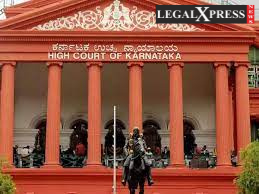 Karnataka HC directs DGP to implement use and body cams and provides compensation in a case of unlawful handcuffing. https://economictimes.indiatimes.com/topic/karnataka-high-court
Karnataka HC directs DGP to implement use and body cams and provides compensation in a case of unlawful handcuffing. https://economictimes.indiatimes.com/topic/karnataka-high-court
|
Suprit Ishwar Divate, a law student at Shikshan Parasrak Mandal's Law College in Raibagh, filed a lawsuit against State in the High Court of Karnataka seeking compensation of Rs. 25 lakh after he'd been handcuffed and paraded through the streets of the Ankali market in the Chikkodi taluk of the Belagavi district.
The student was detained in connection with a criminal check bounce case. Karnataka government contended that the accused was handcuffed while being taken to the court due to the shortage of competent personnel to carry out the arrest. The High Court, however, rejected the contention and ruled that the lack of qualified staff to make the arrest is not a justification for handcuffing. The arresting police officer and the prosecution were unable to raise any defences. However, the accused produced a video showing him being handcuffed. The arrest was legal, but the fact that the accused was handcuffed wasn't, hence the high court only gave a compensation judgement of 2 lakh rupees instead of the higher amount of 25 lakh. According to the High Court, it is against the law to handcuff an accused individual without the trial court's authorization when they are brought before the trial courts for their scheduled hearings. The high court continued by stating that handcuffing someone would be considered illegal and unlawful if the police hadn't obtained this consent from the trial court.
In addition to saying this, the high court emphasized the trial court's obligation to check with the accused about their court appearance and confirm the validity of the arrest. The Karnataka high court also stated that “It is only under extreme circumstances that handcuffing of an accused can be resorted to. When such handcuffing is made, the arresting officer is required to record the reasons for handcuffing, which would have to sustain the scrutiny of the Court.” Additionally, it was said that the state police chief should create a standard operating procedure and that officers must receive training before using body cameras. The court also mandated that the camera have a microphone and that it must be kept recording for a year.
The Director-General of Police, Praveen Sood, was ordered to provide body cameras to all qualified officers who carry out arrests by the high court to examine the manner of arrests. At the High Court's Dharwad bench, Justice Suraj Govindraj made this choice. To combat corruption, the High Court of Karnataka High Court last year ordered police officers to procure the necessary number of body cameras for the police departments throughout the state. The state administration was previously given instructions by the Karnataka High Court to establish the smart traffic management system and make sure that all traffic cops were outfitted with body cameras. Studies have indicated that the use of force by police and wrongful arrests are reduced in jurisdictions where police officers are required to wear body cameras when making an arrest. Body cams for police officers are now required in seven American states when they are apprehending suspects.
Tags : #Highcourt #Karnataka #Police #bodycams
Copyright A unit of White Code Global Consulting Pvt Ltd. All rights reserved. Unless otherwise indicated, all materials on these pages are copyrighted by A unit of White Code Global Consulting Pvt Ltd. All rights reserved. No part of these pages, either text or image may be used for any purpose. By continuing past this page, you agree to our Terms of Service, Cookie Policy, Privacy Policy and Content Policies.